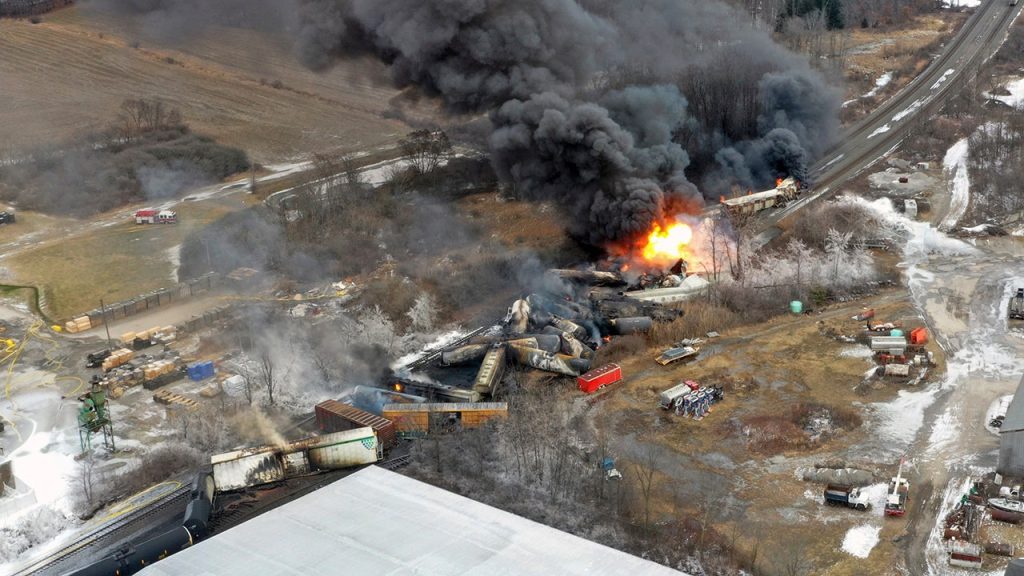The Environmental Protection Agency faced criticism from a whistleblower who claimed that early data collected from a train derailment site along the Pennsylvania-Ohio border was flawed and lacked confidence. The whistleblower alleged that the high-tech EPA plane equipped with advanced radiological sensors was deployed too late and may have been unnecessary in burning off toxic vinyl chloride from five rail cars. The whistleblower, Robert Kroutil, expressed concerns that the data provided by the plane was incomplete and irregular, leading to a lack of trust in the results obtained.
According to the whistleblower, the EPA’s ASPECT plane did not fly over the site until a day after the controlled release of vinyl chloride. The agency’s response to the accusations included a statement that weather conditions prevented the prompt surveying of the location and that the plane was deployed as soon as the request was made. The EPA refuted the whistleblower’s claims, stating that readings from the ground before the plane flew over depicted contaminants to be below detection levels, with the exception of particulates. The agency also mentioned that Kroutil was not part of the ASPECT flight crew in Ohio.
Despite the whistleblower’s concerns and criticisms, the EPA reported that it had collected 28,000 air samples since the disaster and found no sustained chemicals of concern in the air following the residents’ return to their homes. The agency emphasized its commitment to transparency in response to the tragedy and said it would continue to honor public records requests. Ohio Governor Mike DeWine’s office responded to the whistleblower allegations by stating that individuals with pertinent information were asked to come forward in the immediate aftermath of the spill, but no one did so at that time.
Politicians in both Ohio and Pennsylvania reacted to the whistleblower’s claims, expressing disappointment in the alleged delays and botched response approaches that took place following the train derailment. State Senator Elder Vogel, Jr., and State Senator Doug Mastriano conducted hearings to address the long-term effects of the disaster on residents in affected areas. Efforts were also made to provide tax deductions for Pennsylvania-based victims of the incident. Pennsylvania Governor Josh Shapiro and East Palestine officials were also contacted for comment, but no response was received at the time.
In conclusion, the whistleblower’s allegations regarding the EPA’s response to the train derailment in Pennsylvania and Ohio have sparked criticism from politicians and officials in both states. While the EPA refuted the claims and emphasized its commitment to transparency, concerns remain about the handling of data and the timing of the ASPECT plane deployment. Efforts to address the long-term impacts of the disaster continue, with state senators working to provide support for affected residents and hold hearings to investigate the response efforts. Political reactions to the whistleblower’s claims vary, with some calling for accountability and improved disaster response protocols.


